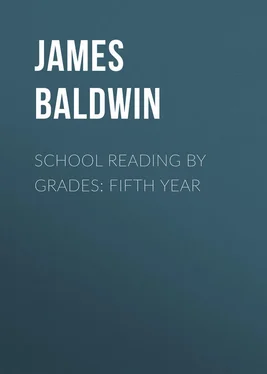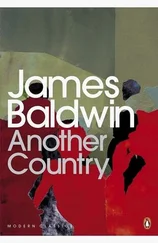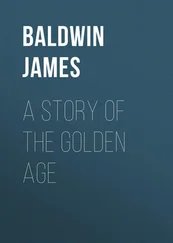James Baldwin - School Reading By Grades - Fifth Year
Здесь есть возможность читать онлайн «James Baldwin - School Reading By Grades - Fifth Year» — ознакомительный отрывок электронной книги совершенно бесплатно, а после прочтения отрывка купить полную версию. В некоторых случаях можно слушать аудио, скачать через торрент в формате fb2 и присутствует краткое содержание. Жанр: foreign_antique, foreign_prose, на английском языке. Описание произведения, (предисловие) а так же отзывы посетителей доступны на портале библиотеки ЛибКат.
- Название:School Reading By Grades: Fifth Year
- Автор:
- Жанр:
- Год:неизвестен
- ISBN:нет данных
- Рейтинг книги:4 / 5. Голосов: 1
-
Избранное:Добавить в избранное
- Отзывы:
-
Ваша оценка:
- 80
- 1
- 2
- 3
- 4
- 5
School Reading By Grades: Fifth Year: краткое содержание, описание и аннотация
Предлагаем к чтению аннотацию, описание, краткое содержание или предисловие (зависит от того, что написал сам автор книги «School Reading By Grades: Fifth Year»). Если вы не нашли необходимую информацию о книге — напишите в комментариях, мы постараемся отыскать её.
School Reading By Grades: Fifth Year — читать онлайн ознакомительный отрывок
Ниже представлен текст книги, разбитый по страницам. Система сохранения места последней прочитанной страницы, позволяет с удобством читать онлайн бесплатно книгу «School Reading By Grades: Fifth Year», без необходимости каждый раз заново искать на чём Вы остановились. Поставьте закладку, и сможете в любой момент перейти на страницу, на которой закончили чтение.
Интервал:
Закладка:
“Ah, my poor fellow!” said De Narsac, “you have led me here to show me your master’s grave.” And with that he turned and hurried back to the city; but the dog would not stir from his place.
That afternoon a company of men, led by De Narsac, rode out to the forest. They found in the ground beneath the oak what they had expected – the murdered body of young Aubrey de Montdidier.
“Who could have done this foul deed?” they asked of one another; and then they wept, for they all loved Aubrey.
They made a litter of green branches, and laid the body upon it. Then, the dog following them, they carried it back to the city and buried it in the king’s cemetery. And all Paris mourned the untimely end of the brave young knight.
After this, the greyhound went to live with the young Sieur de Narsac. He followed the knight wherever he went. He slept in his room and ate from his hand. He seemed to be as much devoted to his new master as he had been to the old.
One morning they went out for a stroll through the city. The streets were crowded; for it was a holiday and all the fine people of Paris were enjoying the sunlight and the fresh air. Dragon, as usual, kept close to the heels of his master.
De Narsac walked down one street and up another, meeting many of his friends, and now and then stopping to talk a little while. Suddenly, as they were passing a corner, the dog leaped forward and planted himself in front of his master. He growled fiercely; he crouched as though ready for a spring; his eyes were fixed upon some one in the crowd.
Then, before De Narsac could speak, he leaped forward upon a young man whom he had singled out. The man threw up his arm to save his throat; but the quickness of the attack and the weight of the dog caused him to fall to the ground. There is no telling what might have followed had not those who were with him beaten the dog with their canes, and driven him away.
De Narsac knew the man. His name was Richard Macaire, and he belonged to the king’s bodyguard.
Never before had the greyhound been known to show anger towards any person. “What do you mean by such conduct?” asked his master as they walked homeward. Dragon’s only answer was a low growl; but it was the best that he could give. The affair had put a thought into De Narsac’s mind which he could not dismiss.
Within less than a week the thing happened again. This time Macaire was walking in the public garden. De Narsac and the dog were some distance away. But as soon as Dragon saw the man, he rushed at him. It was all that the bystanders could do to keep him from throttling Macaire. De Narsac hurried up and called him away; but the dog’s anger was fearful to see.
It was well known in Paris that Macaire and young Aubrey had not been friends. It was remembered that they had had more than one quarrel. And now the people began to talk about the dog’s strange actions, and some went so far as to put this and that together.
At last the matter reached the ears of the king. He sent for De Narsac and had a long talk with him. “Come back to-morrow and bring the dog with you,” he said. “We must find out more about this strange affair.”
The next day De Narsac, with Dragon at his heels, was admitted into the king’s audience room. The king was seated in his great chair, and many knights and men at arms were standing around him. Hardly had De Narsac stepped inside when the dog leaped quickly forward. He had seen Macaire, and had singled him out from among all the rest. He sprang upon him. He would have torn him in pieces if no one had interfered.
There was now only one way to explain the matter.
“This greyhound,” said De Narsac, “is here to denounce the Chevalier Macaire as the slayer of his master, young Aubrey de Montdidier. He demands that justice be done, and that the murderer be punished for his crime.”
The Chevalier Macaire was pale and trembling. He stammered a denial of his guilt, and declared that the dog was a dangerous beast, and ought to be put out of the way. “Shall a soldier in the service of the king be accused by a dog?” he cried. “Shall he be condemned on such testimony as this? I, too, demand justice.”
“Let the judgment of God decide!” cried the knights who were present.
And so the king declared that there should be a trial by the judgment of God. For in those rude times it was a very common thing to determine guilt or innocence in this way – that is, by a combat between the accuser and the accused. In such cases it was believed that God would always aid the cause of the innocent and bring about the defeat of the guilty.
The combat was to take place that very afternoon in the great common by the riverside. The king’s herald made a public announcement of it, naming the dog as the accuser and the Chevalier Macaire as the accused. A great crowd of people assembled to see this strange trial by the judgment of God.
The king and his officers were there to make sure that no injustice was done to either the man or the dog. The man was allowed to defend himself with a short stick; the dog was given a barrel into which he might run if too closely pressed.
At a signal the combat began. Macaire stood upon his guard while the dog darted swiftly around him, dodging the blows that were aimed at him, and trying to get at his enemy’s throat. The man seemed to have lost all his courage. His breath came short and quick. He was trembling from head to foot.
Suddenly the dog leaped upon him and threw him to the ground. In his great terror he cried to the king for mercy, and acknowledged his guilt.
“It is the judgment of God!” cried the king.
The officers rushed in and dragged the dog away before he could harm the guilty man; and Macaire was hurried off to the punishment which his crimes deserved.
And this is the scene that was carved on the old mantelpiece in the castle of Montargis – this strange trial by the judgment of God. Is it not fitting that a dog so faithful, devoted, and brave should have his memory thus preserved in stone? He is remembered also in story and song. In France ballads have been written about him; and his strange history has been dramatized in both French and English.
THE OLD OAKEN BUCKET
How dear to my heart are the scenes of my childhood,
When fond recollection presents them to view!
The orchard, the meadow, the deep, tangled wildwood,
And every loved spot that my infancy knew.
The wide-spreading pond, and the mill that stood by it;
The bridge and the rock where the cataract fell;
The cot of my father, the dairy house nigh it,
And e’en the rude bucket which hung in the well —
The old oaken bucket, the iron-bound bucket,
The moss-covered bucket which hung in the well.
That moss-covered bucket I hail as a treasure;
For often at noon, when returned from the field,
I found it the source of an exquisite pleasure,
The purest and sweetest that nature can yield.
How ardent I seized it, with hands that were glowing,
And quick to the white-pebbled bottom it fell;
Then soon with the emblem of truth overflowing,
And dripping with coolness it rose from the well —
The old oaken bucket, the iron-bound bucket,
The moss-covered bucket arose from the well.
How sweet from the green mossy brim to receive it,
As poised on the curb, it inclined to my lips!
Not a full blushing goblet could tempt me to leave it,
Though filled with the nectar that Jupiter sips.
And now, far removed from thy loved situation,
The tear of regret will oftentimes swell,
As fancy returns to my father’s plantation,
And sighs for the bucket which hangs in the well —
The old oaken bucket, the iron-bound bucket,
The moss-covered bucket which hangs in the well.
Интервал:
Закладка:
Похожие книги на «School Reading By Grades: Fifth Year»
Представляем Вашему вниманию похожие книги на «School Reading By Grades: Fifth Year» списком для выбора. Мы отобрали схожую по названию и смыслу литературу в надежде предоставить читателям больше вариантов отыскать новые, интересные, ещё непрочитанные произведения.
Обсуждение, отзывы о книге «School Reading By Grades: Fifth Year» и просто собственные мнения читателей. Оставьте ваши комментарии, напишите, что Вы думаете о произведении, его смысле или главных героях. Укажите что конкретно понравилось, а что нет, и почему Вы так считаете.












